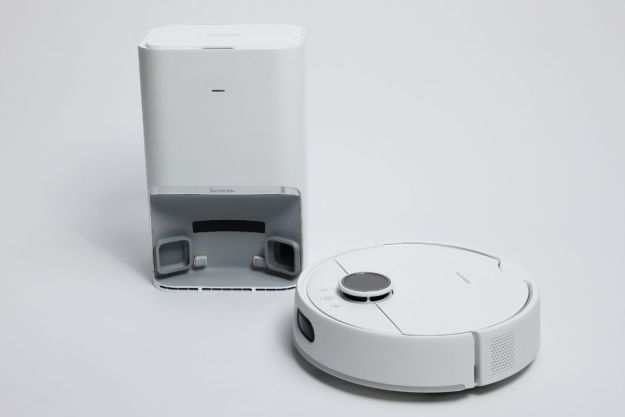When you look at how many startups offer well-stocked cafeterias among their employee perks, it’s no great surprise to hear that people working in the tech industry love food. But how many love it enough to launch their own restaurant? At least four: Recent MIT graduates Brady Knight, Michael Farid, Luke Schlueter and Kale Rogers. They recently launched a new fast food restaurant called Spyce. Its hook? The fact that the entire kitchen is staffed by robots.
Now open for business in downtown Boston, Spyce offers a half dozen bowls of food in Latin, Mediterranean, and Asian styles. Prices start out at just $7.50 a bowl. The explanation for the budget conscious price tag is because using robots to prepare the meals saves on costs. These savings are then passed directly on to the customer for an experience that’s both high-tech and wallet-friendly.
“While we expected many people to come to the restaurant at first because of the novelty of the robot, the real benefit of our robotic kitchen comes from the quality of meals we are able to serve,” co-founder and lead electrical engineer Brady Knight told Digital Trends. “Being that our robot does the portioning and cooking, we can ensure the meals are being made consistently and accurately. Another advantage is that our technology allows employees to focus on creating more meaningful connections with our guests.”

When customers enter Spyce, they are met with a human guide who shows them to a touchscreen kiosk where they can place their order. This order is then sent to the kitchen — which is visible to the customers — where the food is prepared by robots. Finally, it’s handed over to a human employee to add garnishes like cilantro or crumbled goat cheese, before being distributed to the customer.
Don’t worry about a lack of human chef expertise, though. The Spyce robots precisely execute recipes created by Sam Benson of the celebrated Café Boulud. The company also boasts Michelin-starred chef Daniel Boulud on its advisory board, having agreed to participate after seeing a demonstration of the robot in action.
“Running a restaurant is quite difficult,” Knight acknowledged. “It’s an industry of low margins, with high turnover rates, and little room for error. While I can’t speak to the industry as a whole, our technology has allowed us to deliver incredible meals for $7.50 and serve them consistently. We’re excited to be part of the industry and grow with it.”
Editors' Recommendations
- Roborock S8 MaxV Ultra vs. Roborock S8 Max Ultra: Which is the better robot vacuum?
- Roborock S8 MaxV Ultra vs. Ecovacs Deebot X2 Combo: Which premium robot vacuum is best?
- Boston Dynamics retires its remarkable Atlas robot
- Beatbot makes a splash at CES 2024 with all-in-one robotic pool cleaner
- iRobot Roomba Combo j9+ vs. Roborock S8 Pro Ultra: Which is the better robot vacuum?


